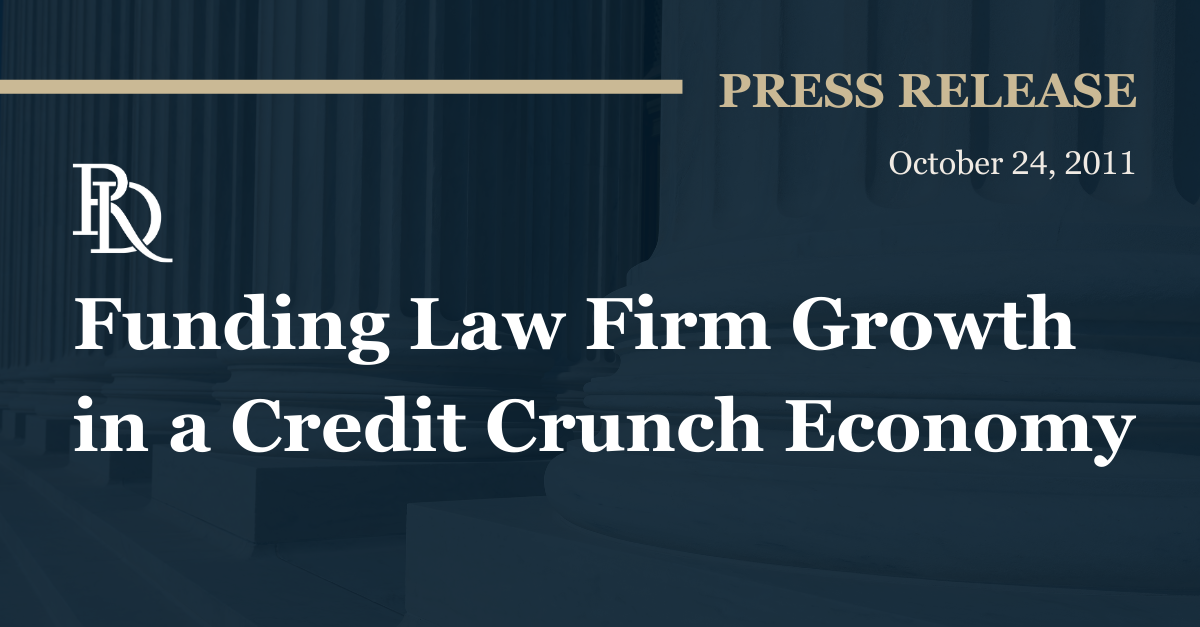
Litigation is expensive. Without financing, many firms lack the resources to bring meritorious actions to trial or to attain a lucrative settlement in the best interests of a contingency fee plaintiff. This reality has been further complicated by the ongoing credit crisis. Law firms, like other small or entrepreneurial businesses, have experienced a reduction in the general availability of loans (or credit), or seen a sudden and unreasonable tightening of the conditions required to obtain financing from banks and traditional lenders.
Firms which previously were able to rely on a line of credit or loan from a traditional bank or lender have found such avenues of financing drying up or no longer available. At the same time, clients continue to look for alternative bases to finance bringing litigation over the anticipated years of concentrated warfare that litigation sometimes requires. Plaintiff firms, in particular, need resources in order to combat the traditional “war of attrition” waged by large firms on the defense side. What alternatives exist for law firms in this economy?
A contingency fee practice with the attendant costs of litigation is often understood as a “feast or famine” proposition that creates severe cash flow problems and financial uncertainty for trial attorneys and law firms. In even the best of times, many practitioners are forced to mortgage their own real property or pledge other assets to collateralize a personal loan that is then used to support the law practice.
Banks rarely recognize the value of future contingency fees as collateral. Banks cannot and will not make law firm loans or attorney lines of credit based solely on the value of pending case inventory. The lending decisions of banks are based primarily on the personal credit of the individual partners and the value of the attorneys' personal assets. When banks do partake in law firm funding, they usually lend a limited amount that is often inadequate to support firm objectives, so partners are still required to contribute personal capital-and shoulder the risk.
Banks also file a broad UCC lien against the assets and "general accounts" of the law practice, encumbering the firm's future fees while at the same time refusing to lend an amount that is truly reflective of the full value of those fees. Banks usually insist that the equity partners sign guarantees, making them personally liable to repay the loan no matter what their case outcomes may be.
Law firms looking to grow their practice cannot count on traditional lenders to support such efforts in this economy. They must look to alternative lawsuit financing options, which we will discuss in part 2 of this article.